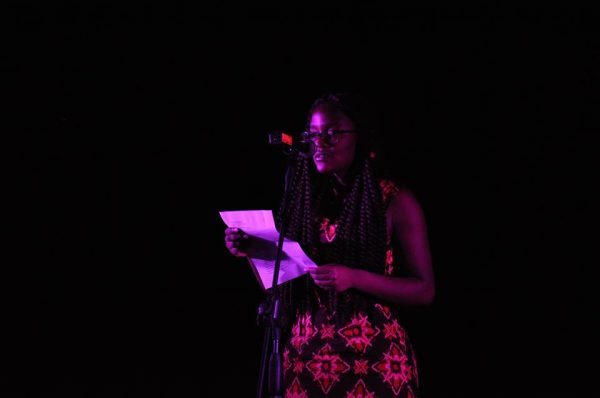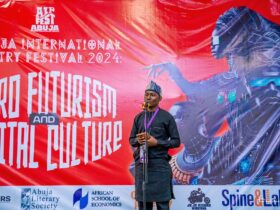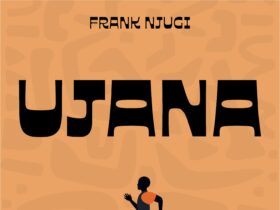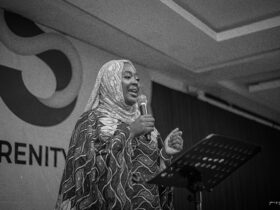
Konya Shamsrumi: What is the process of writing a poem like for you? Is it a lot of hard work or easy?
Alexis Teyie: To answer the question directly, yes, it is embarrassingly simple. And yet, since that doesn’t ring fully true, I should start by saying, I don’t think of it as ‘writing’ poetry as such, but more of ‘making.’ So the writing itself often comes out of me without too much suffering, but the making is quite an ordeal. A lot of writers have wondered where the poem begins. Famously, Frost says, “a poem begins with a lump in the throat.” And for me, there are some poems that stay this way, only fractionally formed, but very tangible nonetheless and I can only clear my throat many years later. Now, the poems that are a puzzle (I love puzzles!), these are strangely easy to churn out. I ask: how can one transmute this thought-feeling into this form, a ghazal or a villanelle, say. But those lumps, those are the ones that take years to make, to undo and redo, until finally they unravel on the page. To amend my falsely transparent answer then, yes, making poems is often simple to me, but rarely easy.
Konya Shamsrumi: Please describe your sense of identity in this or any possible world in imagery or metaphor?
Alexis Teyie: My sense of identity. Well, that’s rather fraught, especially given the times we live in. I have multiple, tiered answers to this question that change frequently. That said, if at all there is some significant place for agency here, and I like to think there must be, then before anything else, I’m a radical Marxist. This decidedly sketchy way of being in the world, a deliberately Marxist/Leninist way of being in the world, has informed how I polish other aspects of myself, and how I engage with others. Because I am Marxist, I’m a feminist. Because I’m Marxist, I’m anti-colonial. Because I’m Marxist, I work to incorporate queer, trans, and disability aware philosophy and activism in my own life, and in the work I support. Because I’m a Marxist, I am a poet. If there’s an image or metaphor for this kaleidoscope, I’m not sure I’ve encountered it, but if you’ve ever put the music loud in the dark and placed your palms on the speakers, then that’s sort of how it feels like to live inside this body sometimes.

Konya Shamsrumi: If any of your poems could literarily save a person’s life, which poem would it be and can you describe the person whose life you think it would have saved?
Alexis Teyie: That’s a tricky question, but one I think about often. Czeslaw Milosz, one of my favourite poets, says, “What is poetry which does not save/ Nations or people?” I can’t really say at this point. The work I am making now is not yet doing what I trust it can. Even so, the poem that saved me is titled, ‘Water Lilies.’ I made this poem after 8 months of writing nothing. I was unwell, and my mind was both on fire and deeply foggy. The only thing ringing in my head was “what then?” I was a big Yeats fan was I was younger and for some reason this stupid refrain rose up from somewhere and got lodged in a groove in my mind. Anyhow, there I was, not getting any work done, properly sick and drowning in the most acute loneliness of my life but then I somehow muster enough energy to go to a gallery. There’s a painting by my favourite artist. And then I think, colour. Colour is what will remain. I didn’t need any sweeping philosophies, or any grand miracles. I just needed the assurance that something small and beautiful would last; you know, that old Keats promise: “A thing of beauty is a joy for ever: / Its loveliness increases; it will never / Pass into nothingness…”
So, for people who treasure small consolations. For people who are done but need an excuse to hold on, despite all the cases supporting the contrary, then ‘Water Lilies’ is the poem. It’s a short thing, and it closes simply:
Colour is all that will remain, darling.
Deeply, darkly, but more often, gently,
lightly. Lightly.
And when we are older, we can dream our souls, too,
will leave a residue; paler maybe, but the colour of
water lilies.
Lightly. Just to take the terror and the joy and the juice lightly. To take it all lightly, that’s all.
Konya Shamsrumi: What does Africa mean to you, as potential or reality?
Alexis Teyie: I studied History, and would like to continue to work as a historian so this question is worth a few volumes in answers. I’ll say this here, then, I have been an enthusiastic lover and practitioner of Afro-futurism, which is really a philosophy that many of us live, even if implicitly. I am keen for a turbo charged vision of Nkrumah’s Pan-Africanism, but with a deliberate class lens, and most importantly, with the audacity and wild promise that only people with the history that we have can create. What does that mean, in praxis? It means I work to read and critique and fall in love with different works by Africans. It means investing in so-called development work, which to me offers a way to restore people’s dignity, especially for African women. It means caring for and loving other Africans, undoing all these colonial hangovers. It means living in Kenya, and carrying it with me, but knowing this work is for much more than these borders.
Konya Shamsrumi: Could you share with us one poem you’ve been most impressed or fascinated by? Tell us why and share favourite lines from it.
Alexis Teyie: Just one? That’s mildly perverse. Jared Angira is one of the poets who meant so much to me in the early days. Nye, Takuboku, Diop, Creeley, Bei Dao, Mapanje, Paz, Carson, O’Hara, Cavafy, Okigbo and so on. Ah, but I shan’t try to run through any of the poems I’ve been ‘most impressed and fascinated by’; instead, I’ll tell you about the first poem I remember completely knocking the wind out of me. I was 8 years old. I remember walking around with this poem clinking in my mind for weeks, ‘I wandered lonely as a cloud.’ It’s this simple, delicious, open poem. The music of it just got me, and I worked on rhymes for years after because of it, but my word, “a crowd,/ a host, of golden daffodils.” It leaves a sweet taste on the tongue, reciting it. And, it reminds me of why we make this poetry. Partly to document, partly to savour, partly to honour, to commune, to be restored to ourselves. Anyhow, that’s Wordsworth’s way, and now to figure out mine.
Alexis Teyie is Kenyan writer. Her poetry is included in the Jalada ‘Afrofuture(s)’ and ‘Language’ issues, as well as the Black Girl Seeks anthology. Her short fiction is published in Short Story Day Africa’s ‘Water’ anthology and GALA’s ‘Queer Africa II’ anthology. Her work is also featured in Omenana, Q-zine, This is Africa, Writivism, Anathema’s ‘Spec from the Margins’ anthology, HOLAA’s ‘Safe Sex Manual’ among others. Alexis recently co-authored a children’s book titled Shortcut. Alexis is a co-founder and poetry editor with Enkare Review. She also works in impact measurement, and is an early career scholar building a portfolio of work on visual culture and militarization in the Horn of Africa. Upcoming work includes a poetry chapbook, Clay Plates, to be released in early 2018 by the African Poetry Book Fund in partnership with Akashic Books.
Facebook: Alex Teyie
Twitter: @alexteyie
- Poets Talk: 5 Questions with Chika Jones - April 9, 2018
- Poets Talk: 5 Questions with Nyachiro Lydia Kasese - February 28, 2018
- Heart of Poetry: Tsenongu Moses Terhemba’s On His Neglect of Prose by Ismail Bala - February 6, 2018













Leave a Reply